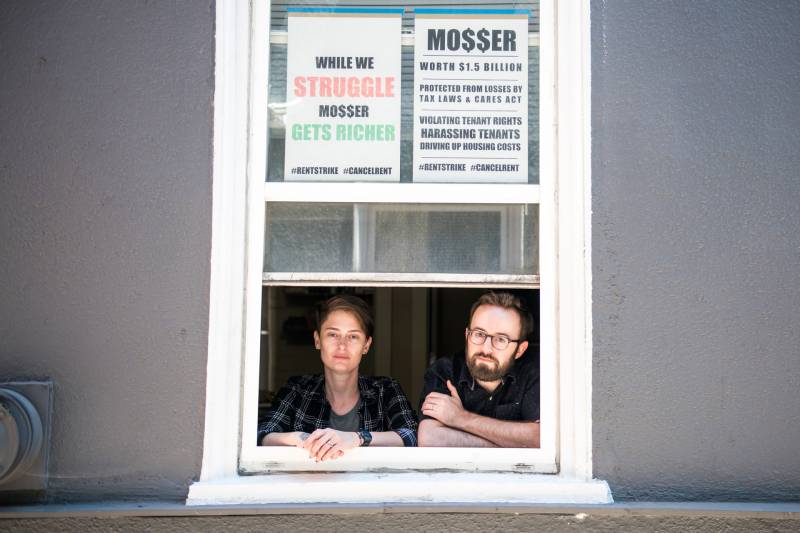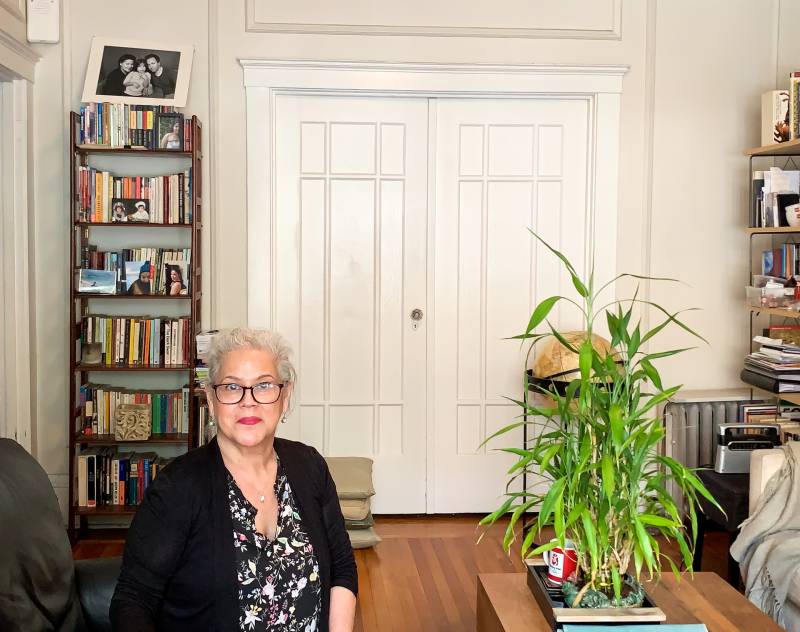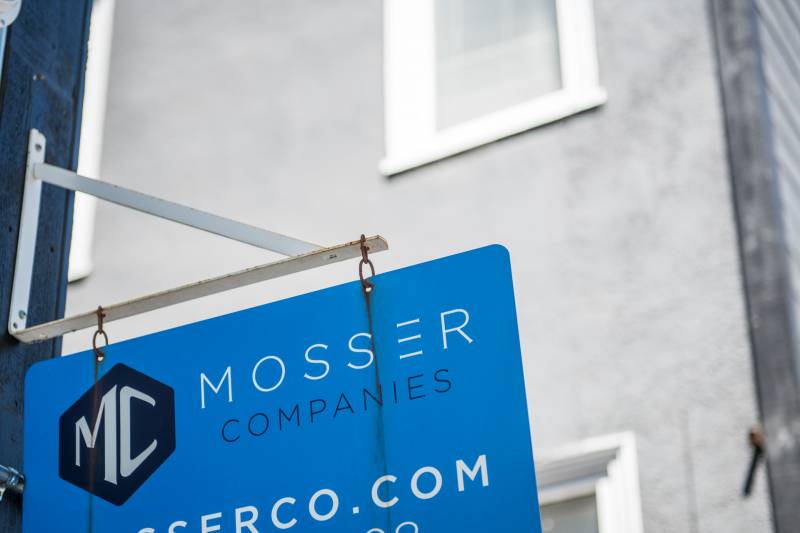Government records show Mosser Companies received a loan of between $2 million and $5 million under the Paycheck Protection Program, passed by Congress in March to help small businesses avoid layoffs during the pandemic. The data, posted last month by the federal Small Business Administration, shows loan amounts in broad ranges, not specific amounts.
The company’s property management arm, Mosser Living, offers rental units in 55 properties across San Francisco, 20 properties in Oakland and eight properties in Los Angeles, promising a “blend” of “vintage with modern upgrades in all the right places, striking the perfect balance between authentic and awesome.”
“We call this Mosser Living. You’ll call it ‘home,’ ” the company’s website says.
Furtkamp says the thought that federal assistance has been unable to help him and his wife meet their rent while Mosser got millions in federal support makes him furious.
“For them to take advantage of a program like this that’s intended for small business — that doesn’t have access to capital in the way that they do — it’s just kind of insulting that they would abuse the program in that way,” Furtkamp said.
Mosser Companies did not respond to repeated requests for comment on its loan and its response to tenants in Furtkamp’s building.
Mosser is just one of several large Bay Area property and development firms that scored PPP loans.
Among companies identified for KQED by tenant advocates and industry sources are some of the region’s biggest landlords. They include:
-
- Emerald Fund, developer of 37 projects with more than 5,000 housing units, received a loan of between $1 and $3.5 million
- Maximus Real Estate Partners, which manages San Francisco’s Parkmerced, got a loan of $2 million to $5 million
- Reliant Group Management, which manages 23 properties in the Bay Area and more than 70 in the United States, received between $1 million and $3.5 million
- Grosvenor Properties, which manages four properties in San Francisco, got between $1 million and $3.5 million
- Woodmont Real Estate Services, which owns roughly 80 multifamily properties across California, received between $5 million and $10 million
Deep Pockets — and Big Loans
The news comes on the heels of public outcry over a $3.6 million PPP loan granted to Veritas Investments. San Francisco’s biggest landlord, the company owns and operates more than 250 apartment buildings in the city and has $3 billion in assets.
The loans have received negative attention in part because of some companies’ poor reputations with tenants and community groups.
Some firms on the list, such as Veritas, have been criticized in the past for allegedly trying to push tenants out of rent-controlled buildings. Others, such as Maximus, have been the target of community anger for proposing projects that could gentrify neighborhoods and displace longtime residents.
Politicians, pundits, housing rights activists and those renting from these corporate landlords also argue that the loan recipients are too big and too wealthy to need government help.
Mosser Companies, for instance, includes Mosser Capital, which offers real estate investment opportunities and boasts $1.3 billion in assets.
Other local firms that got PPP loans illustrate the massive amounts of capital that property firms are dealing in as they buy, sell and invest in Bay Area real estate.
Starcity Properties, which received a loan of between $1 and $2 million, owns seven buildings in San Francisco and two in Oakland. It has offered properties on the market for as much as $30 million and sold properties for $11 million and $16 million, according to filings with the federal Securities and Exchange Commission.
Ballast Investments, which received a PPP loan between $1 and $2 million, manages $97 million in assets, according to its SEC filings, with custody of $38 million across 78 clients.
A Tough Borrowing Environment for Property Managers?
But those working in the real estate industry say some of these wealthy-looking firms may need the short-term help the PPP loans can provide.
Alexander Quinn, director of research for Northern California at real estate services firm JLL, says big property owners typically have access to what’s often called “dry powder” — buildings in their portfolio that can be refinanced to raise cash reserves.
“Now, some of them pulled some of that out, put it into cash, but a lot of them didn’t,” Quinn said. But if they didn’t, borrowing has become more complicated.
“If you were, say, saying, ‘Oh, I need to pull out cash to shore up my cash flow for the next six months,’ it’d be a very difficult thing to do right now,” he said. That’s because it is “really hard to refinance in this market,” Quinn said.
One reason banks would be reluctant to refinance is that borrowers might not have a reliable flow of rent payments because so many tenants have lost income.
But Quinn said that the vast majority of tenants have kept up with rent payments so far.
“Rent payments, rent collections have been pretty good until July,” Quinn said. “We saw roughly over 95% of all renters paying their rent” nationally.
And, Quinn added, who is vulnerable depends on when you bought your properties. Those with older properties are less likely to be cash-strapped, whereas those with new developments may face a harder road.



